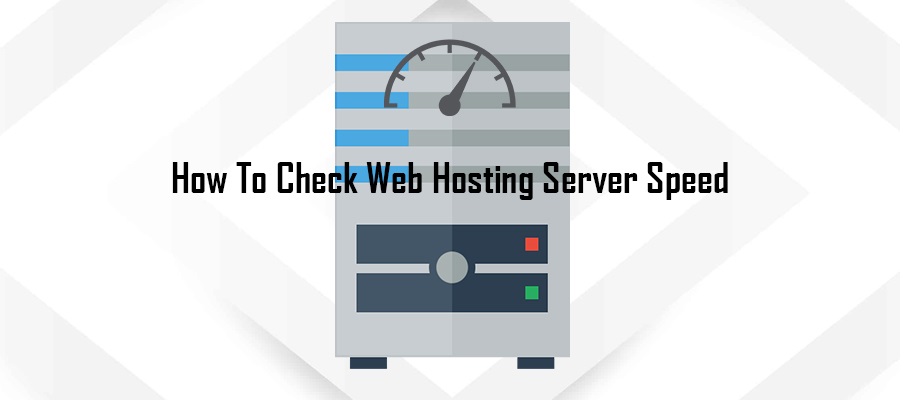
Have you ever think how can we check what is the actual speed of the server? Whether the server is performing well or not. Well there are several ways by which you can check if your server where your site is hosted on, is performing well or not. But first of all why we do need to test the server speed in the first place.
Why do we need to test server speed anyway?
Servers are places where your site is actually hosted on the internet. So the performance of your site is directly proportional to the performance of the server the site is hosted upon. According to stats, every passing second in loading of your site looses you 11% of the visiting users. So it is extremely important to know whether your server is fast enough to serve the site to users in time.
Although the overall speed of your site depends on various other factors, like your site code, database, network speed, etc. But lets assume all other factors are well optimized and you only need to check your server speed.
What are the reasons for server’s slow speed?
So before going into why of the issue, lets understand how the server actually works.
A web server is like a waiter at a restaurant. When anyone orders something he takes the request and send it to the cook where the food is prepared, and when the food is ready, it delivers to the users who ordered. So according to this analogy, the cook is backend interface of any webserver who is responsible for searching and processing the actual site files and then handover the processed data back to ‘waiter’ which in turn delivers the data to the user.
There are many web servers available, Apache, Ngnix, Microsoft IIS, etc. These are the ‘waiters’ of our analogy above.
The major reason for slowing down of any webserver is its poor setup. when the web server couldn’t access the server resources efficiently due to wrong settings, it becomes the bottleneck of the request-response loop. Most of the time this happens because we use the webserver software out-of-the-box, as it was shipped. The web server needs tweaking after installation to maximize the use of server resources before making the site live.
How can we check the server speed?
So how can anyone know how their server is performing? Well, there are many ways for this.
1. TTFB – Time to first byte.
It is a statics which tells us how much time it takes to get the response from server to user. So it will reflect the total time taken by the server to process and deliver the request.
You can check this metrics on google pagespeed or gtmetrix.
2. Pagespeed – You can use page speed tool provided by google to check the performance of each element of the page, that included the server response time as well. There are other free tools provided as well, like GTMetrix and Solarwinds
3. Round trip time – The amount of time a round trip of request took, that includes the request from browser to server and response back to browser. For this you can generally use a ping command from terminal. This will also include the network latency, but as we earlier assumed it to be optimal so that is not an issue.
You Must Read: Caching And Shared Hosting
How to debug?
We can check Top command from linux terminal which will tell us how much memory is being used, what is the load average and what processes are running right now, it is very crucial to check whether there is any unwanted processes running on the server or not, and remove or kill them if there are. That will free up your server resources and create space for our site to utilize that space by serving requests. This command will also tell you how much swap space is being used on your server, which is directly proportional to the latency of server, as swap usage must be minimum and more tasks should be done from ram itself.
These are the ways you can check your server speed, we at DssWebHost are always ready to provide Best hosting servers with utmost performance, which will boost your site speed by 300x.

